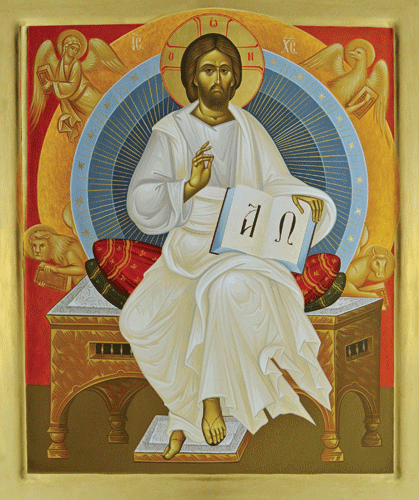The End of All Things

Everybody seems to think this is the end. From religious eschatologies (the doctrine of the last things) to the environmental crisis to a veritable deluge of books and movies in popular culture - everything from The Left Behind series to zombies - everybody seems to be thinking about the end times. And though there is a wide array of opinion on what it means and what it will look like, the one thing they all seem to have in common is the belief that we are already in - or fast approaching - the climax of history. The common assumption in all of these theories or trajectories is the notion, often taken for granted, that history is a timeline moving forward toward its culmination.
It is quite interesting, then, when we turn to the Gospel of John in the Paschal season. John is the spiritual Gospel, the mystical Gospel, and while we might be familiar with that designation, we might not know what it means. A big part of what it means is that we need to rethink what we mean by the end times.
We could get a better handle on this by looking at two little words in the Gospel of John: “now” and “hour”. Often these two words are used together.
For example, when speaking to the Samaritan woman at the well Jesus says, “But the hour is coming, and now is, when the true worshipers will worship the Father in spirit and truth….” (4.23) And one chapter later he says, “Most assuredly, I say to you, the hour is coming, and now is, when the dead will hear the voice of the Son of God; and those who hear will live.” (5.25)
In chapter 12 Jesus says to the disciples, “The hour has come that the Son of Man should be glorified.” (23) And then a few verses later, “Now is the judgment of this world; now the ruler of this world will be cast out.” (31)
In 13.1, at the beginning of his discourse to the disciples on the night of his arrest, John says, “Jesus knew that His hour had come….” And later in the chapter Christ says to them, “Now the Son of Man is glorified, and God is glorified in Him.” (31)
Finally, in the last chapter of the farewell discourse, the Lord prays to the Father, saying, “Father, the hour has come. Glorify Your Son, that Your Son also may glorify You....” (17.1) Then, “And now, O Father, glorify Me together with Yourself, with the glory which I had with You before the world was.... But now I come to You, and these things I speak in the world, that they may have My joy fulfilled in themselves.” (5, 13)
You might be wondering what all of this has to do with the end times. Bear with me a bit more, for we need to ask one more question: what, according to Christian teaching, happens at the end of time? The answer, as we affirm in the Creed, is the judgment. But we have just read in John 12.31 that Jesus says, “Now is the judgment of this world.” And way back in chapter 3, in his conversation with Nicodemus, the Lord states, “He who believes in Him is not condemned; but he who does not believe is condemned already, because he has not believed in the name of the only begotten Son of God. And this is the condemnation, that the light has come into the world, and men loved darkness rather than light, because their deeds were evil.” Not condemned - or condemned - already!
Finally, again regarding the judgment, it is abundantly clear in St John’s Gospel that in the trial of Jesus before the Jewish leaders and Pontius Pilate, it is really they who are on trial. And not only them but, as Christ says, “the world”. The deep irony is that the one whom they beat and spit on and scourge and array in the royal purple with a crown truly is the King. It is an irony brought painfully home to us on Holy Thursday night as we stand before the Lord of Glory on the Cross and hear Pilate’s words, “Behold your king!”
In all of these ways and many others the Gospel of John makes clear to us that, in a very real sense, the end of time has already come. If this upsets our timeline - view of history, well, that is precisely what it intends to do. For the end of time is not a date on the calendar or even a mere event in religious history, it is Christ. We should know this already because we heard Jesus correct Martha when she said, “I know that [my brother] will rise again in the resurrection at the last day.”, Jesus said to her, “I am the resurrection and the life.” (11.24-25)
To state it succinctly, as one biblical scholar has done, in the Gospel of John “Eschatology is Christology.” We, who weekly commune in Christ in the Divine Liturgy, know this already, for in the Liturgy everything – time, space, our created nature and the cosmos with it – is taken up and offered up by Christ our Great High Priest. What is required of us is for this liturgical and Gospel reality to change us and shape us into a people who are now, at this hour, living the end of all things, Christ our God, to whom is due all glory, with his Father and the Holy Spirit, now and ever, and unto the ages of ages. Amen.
With love in Christ,
Fr John














